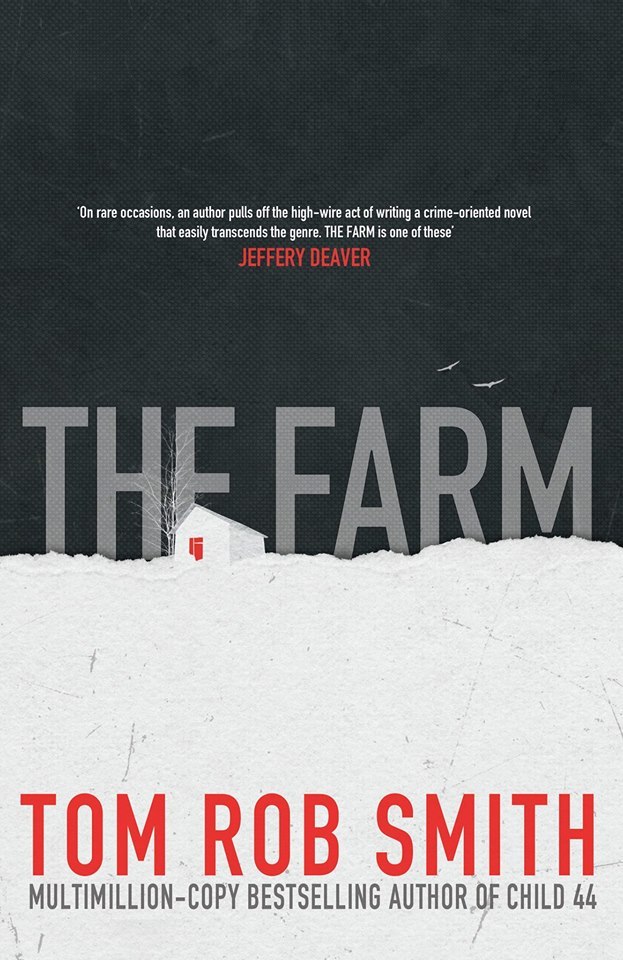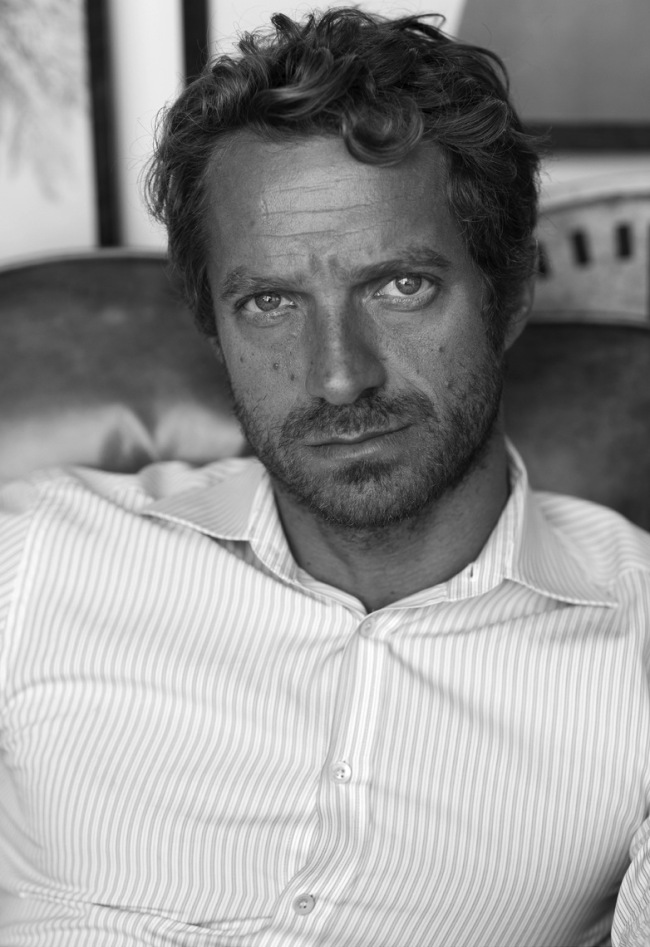Tom Rob Smith’s fourth novel, “The Farm,” opens with a vivid conflict: A Londoner named Daniel receives a phone call from his father with troubling news. “Your mum’s in hospital,” the older man says. “She’s been committed.” Then the phone rings again and it’s his mother, who offers a conflicting tale. “I’m on a payphone and I don’t have much credit,” she announces. “I’m sure your father has spoken to you. Everything that man has told you is a lie.”
This, of course, is the very definition of high concept. (Not surprisingly, rights to “The Farm” have already been sold to Focus Features and Shine Pictures.) Unfortunately, it’s also the high point of Smith’s novel, which is as turgid and undramatic a thriller as I’ve read.
 |
Tom Rob Smith’s fourth novel “The Farm” (Simon & Schuster) |
Unfolding, for the most part, over a single day, as Daniel debriefs his mother and seeks to keep her from his father, “The Farm” is a book with almost no urgency, no sense that anything’s at stake. In part, this has to do with its structure, which relies, until the final 60 pages, on a series of monologues by Daniel’s mother, punctuated by clarifying questions or scenic details. But even more, the issue is that we don’t believe it, that there is too much here that seems contrived.
This ranges from the action (which revolves around a series of vague “crimes and conspiracies”) to the writing, which all too often shows its bones. “My dad had set in motion a ticking clock,” Daniel declares about a third of the way through the book, as if to amp up the suspense. The most effective suspense, however, doesn’t need to be amped up; it should already infuse the narrative. Daniel’s comment, then, reads as little more than stage direction, as if even Smith were aware that the conflicts in his story remain under-felt.
 |
Author Tom Rob Smith. (James Hopkirk, Author’s official website) |
What makes this surprising is that Smith’s 2008 debut, “Child 44,” was smart and nuanced, the story of a Stalin-era Soviet security agent on the trail of a serial killer. To pull it off (as well as its sequels, “The Secret Speech” and “Agent 6”), Smith had to do a lot of world building, bringing 1950s Moscow to three-dimensional life.
In “The Farm,” the setting is more recognizable: contemporary London, where Daniel lives with his partner, Mark, in a reconfigured loft. This is a potential source of tension, since Daniel hasn’t come out to his parents ― although when they meet Mark, late in the book, it essentially goes unremarked. Even the farm of the title, a tumbledown homestead in his mother’s native land of Sweden, is something of a cipher: remote but hardly menacing in the way Smith intends.
“Here’s the crucial point,” Daniel’s mother intones. “As the fact of isolation sinks into our consciousness we change, not at first but slowly, gradually, until we accept it as the norm. ... It alters our notions of how we should behave, of what is acceptable, and most important of all, what we can get away with.”
At heart, “The Farm” wants to be a psychological thriller. Is Daniel’s mother crazy, or is she being framed? As for the conspiracies she appears to see in every interaction, are they real or the stuff of paranoid fantasy? Such drama is (or should be) heightened by the matter of divided loyalty: Is his father a beleaguered husband or has he been corrupted, as his mother claims?
And yet, perhaps because the so-called evidence in her beat-up satchel is so haphazard, we never fully understand the threat. For Daniel’s mother, there is danger in the community, a sense of secrets shared, of closing ranks. She is suspect because of her background ― she left Sweden at 16 after a personal trauma and fled to England, where she married and raised her son ― but also because she holds herself apart.
To be fair, this is part of Smith’s intention; he wants us to question her story, to be in the same state of suspension Daniel inhabits. “It was increasingly apparent,” he reflects, “that the way in which I listened to her story changed the story itself, and I reaffirmed my intention to present a neutral front, giving little away.”
That’s an interesting observation, suggesting that sanity is in the eye of the beholder, that reality is elusive. Perhaps the coincidences Daniel’s mother pursues ―involving the supposed disappearance of a teenage girl―do add up to something sinister, albeit something only she can see.
Smith, however, is unwilling to keep us in such uncertain territory. Rather, he ties up the loose ends, telegraphing the novel’s outcome from the start. I don’t want to give away too much, although, truth be told, there’s not much to give away. Still, for a man caught between two very different parents, Daniel never acts as if it truly matters, as if it were his family in play.
Even in the final pages, when he takes over the story (finally) and gets us out of the closed room of his mother’s imagination, it’s too little, too late. “Do I even know my parents?” he wonders. “... My fondness for them had drifted into a form of neglect.”
By David L. Ulin
(Los Angeles Times)
(MCT Information Services)









